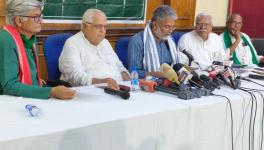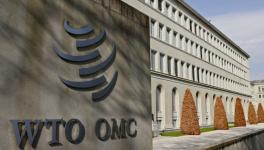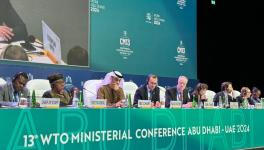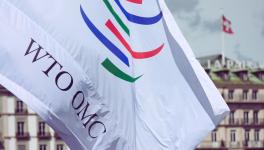COVID-19 Vaccines: Inching Towards Text-based Negotiations on TRIPS Waiver Proposal – Anything Concrete?
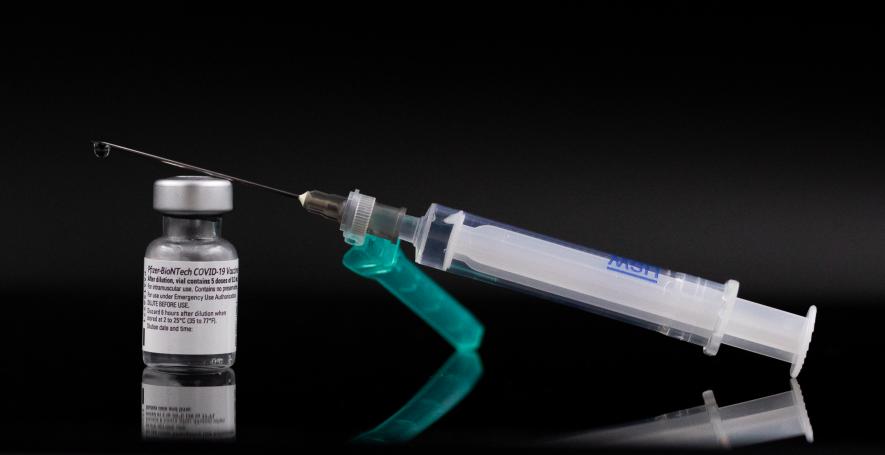
Representational image. | Image Courtesy: Wikimedia Commons
The multilateral negotiations at the World Trade Organisation (WTO) over the proposed temporary waiver of certain restrictive obligations, hampering the accessibility and affordability of medicines, diagnostics, therapeutics, vaccines and other medical products to contain the COVID-19 pandemic gradually inch forward. Another round of formal meetings of the Council of Trade-related Aspects of Intellectual property Rights (TRIPS) concluded on June 9 with the decision to take the discussions on the TRIPS waiver proposal forward and engage in text-based negotiations.
While maintaining their respective divergent views on the issue, the WTO members agreed “to engage constructively in a discussion based on two proposals tabled”. The TRIPS council next meets in an informal meeting on June 17 to assess how textual discussions can move forward towards the General Council meeting of the WTO scheduled on July 21-22.
Just before the start of the formal meeting at the WTO, on June 7, WTO received a petition signed by over 2.7 million people from around the world calling for universal access to affordable COVID-19 vaccines.
Proposals under Consideration
The two proposals up for consideration are, namely, the revised proposal by India and South Africa and the communication from the European Union on urgent trade policy responses to the pandemic.
In October 2020, India and South Africa had mooted a proposal at the TRIPS Council, under the WTO, demanding a temporary waiver of certain TRIPS obligations on copyrights and related rights, industrial designs, patents, and the protection of undisclosed information in relation to the prevention, containment, or treatment of COVID-19.
During the negotiations over the past eight months, clarifications were sought and changes demanded, and India and South Africa submitted a revised proposal on May 25. According to the co-sponsors, the revised proposal reflects the balance between commercial interests of intellectual property rights (IPR) holders and public health at large, and clarifies that there is no intention of continuing the waiver for an indefinite period. The waiver will be time bound, mandating the General Council to decide on the date of termination once the exceptional circumstances end.
Also read: Why TRIPS Waiver Proposal is the Need of the Hour Amid Pandemic
Some of the developed countries continue to oppose the waiver proposal, and underline the importance of IP rights as necessary incentives and rewards to research and innovation. On June 4, the EU submitted an alternate proposal to the TRIPS Council which alluded to the use of TRIPS flexibilities under the Doha Declaration on the TRIPS Agreement and Public Health (2001). The alternate proposal emphasised on the use of compulsory license during the circumstances of a national emergency as prevailing under the pandemic, support to manufacturers and with adequate remuneration to the IPR holder.
Kajal Bharadwaj, an independent lawyer working on trade and health, said, “Over the past eight months, the developed world has tried to weaken the proposal and tried to protect the unconscionable profits of big pharma. They are once again on the wrong side of history as they were over two decades ago when they were confronted with the question of global access to HIV treatment. If millions around the world are on HIV treatment today, it is thanks to large scale generic production of those medicines.”
She added, “The large scale production and supply of safe, effective and affordable diagnostics, treatment, vaccines and personal protective equipment is the only way to deal with the COVID-19 pandemic and TRIPS waiver is a necessary first step in this direction. Two-thirds of the WTO is demanding the waiver. If negotiations do not speed up now, this will cast a shadow on the very institution itself and its commitment to the majority of countries that make up its membership.”
Support from other Quarters
On June 9, the UN human rights experts, part of the Special Procedures of the Human Rights Council including, called on the G-7 leaders, a group of some of the wealthiest economies, to ensure that “people in the Global South get equal access to COVID-19 vaccines and not to allow the profit motive to undermine global health and equity”.
The statement said that the TRIPS flexibilities remain insufficient to respond to the current pandemic and that legal protection for IPRs and patents should not undermine the right of everyone to get access to a safe, timely and effective vaccine.
In a significant development, the European Union Parliament passed an amendment calling for a temporary waiver of the TRIPS Agreement in relation to COVID-19 vaccines, treatments, and equipment. This puts the stand of the European Parliament in contrast to the European Commission which is officially opposing the India-South Africa waiver proposal.
Also read: COVID Vaccines: Garment Unions, Labour Groups Urge UK, EU, Others to Support TRIPS Waiver at WTO
Kathleen Van Brempt, a member of European Parliament and part of the social-democratic group among the Parliamentarians who have been pushing for support to the TRIPS waiver proposal, criticised the alternative proposal by the EC as falling short and not helpful in boosting production in developing countries or increase the access to affordable vaccines in the poorest regions.
In a strongly worded statement she said, “There is a choice to be made by the EU - to protect the pharmaceutical industry or to protect lives.” and that “… the European Parliament calls on the Commission to finally do the right thing and save lives by supporting the lifting of patents for COVID-19 vaccines and medical equipment”.
However, Prof. Biswajit Dhar, Faculty, Jawaharlal Nehru University, points out that there is a need to “temper any excitement on the amendment passed by EU Parliament” and be more realistic in looking at these developments. According to him, although countries have reluctantly agreed to text-based negotiations, it is going to be a long drawn process and with subsequent changes in the language, the outcome may get considerably diluted.
As of now, among the G-7, at least two countries have lent support to the India-South Africa TRIPS waiver proposal, namely the US and France. But it must be noted that these countries strongly believe in IP protections and in fact, the US wants the focus to be on actions needed to address the supply and distribution of vaccines only.
The World Bank, one of the international financial institutions set up to further the interests of advanced capitalist countries, recently opposed the TRIPS waiver proposal. The Bank’s President David Malpass stated that, “We don't support that (India South Africa waiver Proposal), for the reason that it would run the risk of reducing the innovation and the R&D in that sector.”
Also read: Biden’s Decision on TRIPS Waiver is Political Theatre
Given that the actual text-based negotiations are yet to start while the pandemic continues, it appears that all these varied developments are only working towards entangling the real issue in a bureaucratic maze.
As Prof. Dhar pointed out, “The experience of the previous negotiations on many issues concerning developing countries tells that history has not been on the side of the developing countries. In these matters, the larger political economy is always at work. Every country works in its interest and we cannot expect that suddenly the developed countries would turn against their corporates and become friendly towards developing countries. The governments are backed by big companies and there is always a quid pro quo. This is how the political economy works!”
While on the one hand there continues to severe shortage of vaccines and producing capacity dividing the world into vaccine haves and haves not, on the other there are strong pharma and rich country lobbies working to protect the IPR regime and monopoly profits. With the negotiations just inching towards a start, it would be a wait and watch game, though time is crucial in this battle as we still grapple with the pandemic
Get the latest reports & analysis with people's perspective on Protests, movements & deep analytical videos, discussions of the current affairs in your Telegram app. Subscribe to NewsClick's Telegram channel & get Real-Time updates on stories, as they get published on our website.










